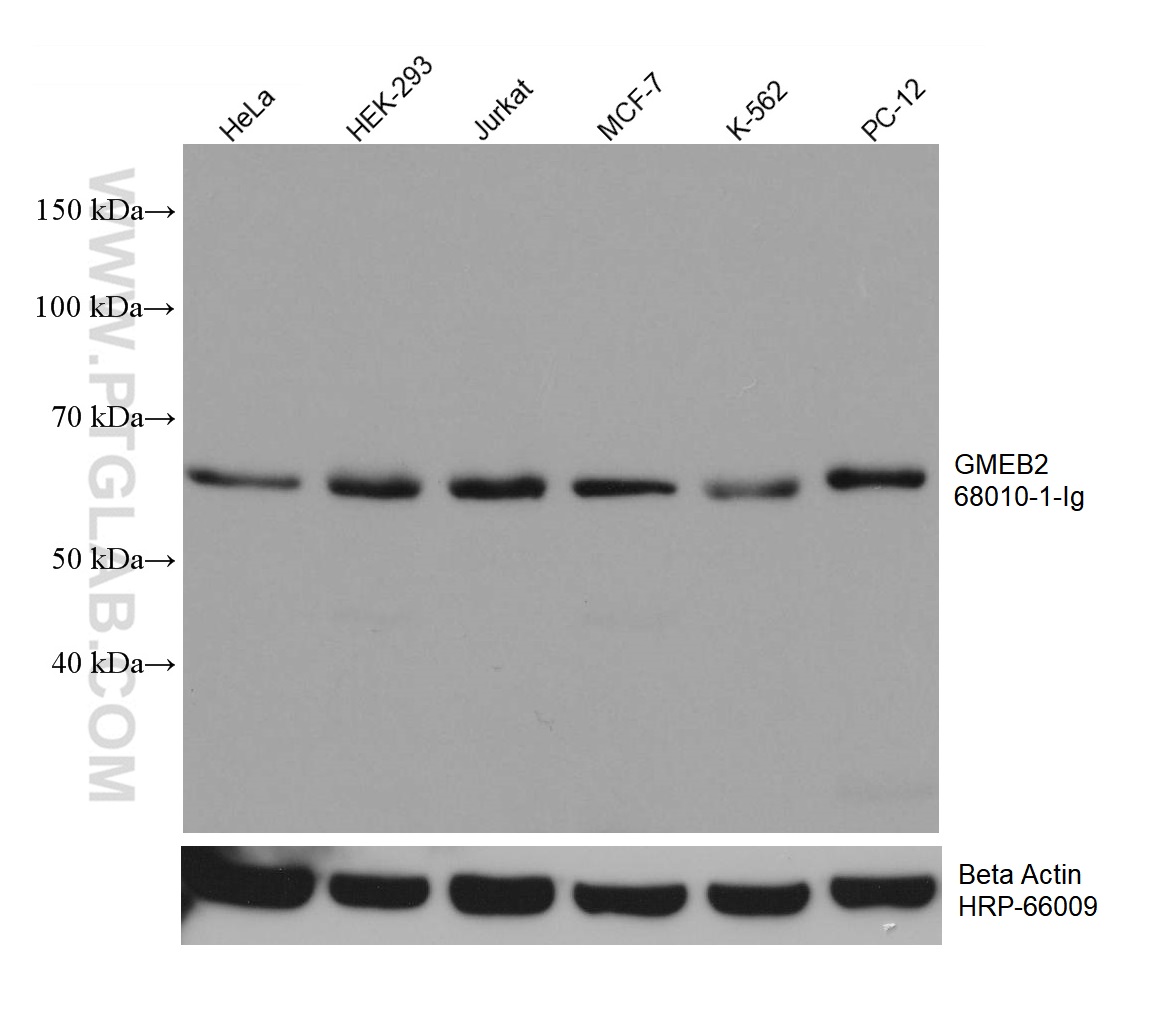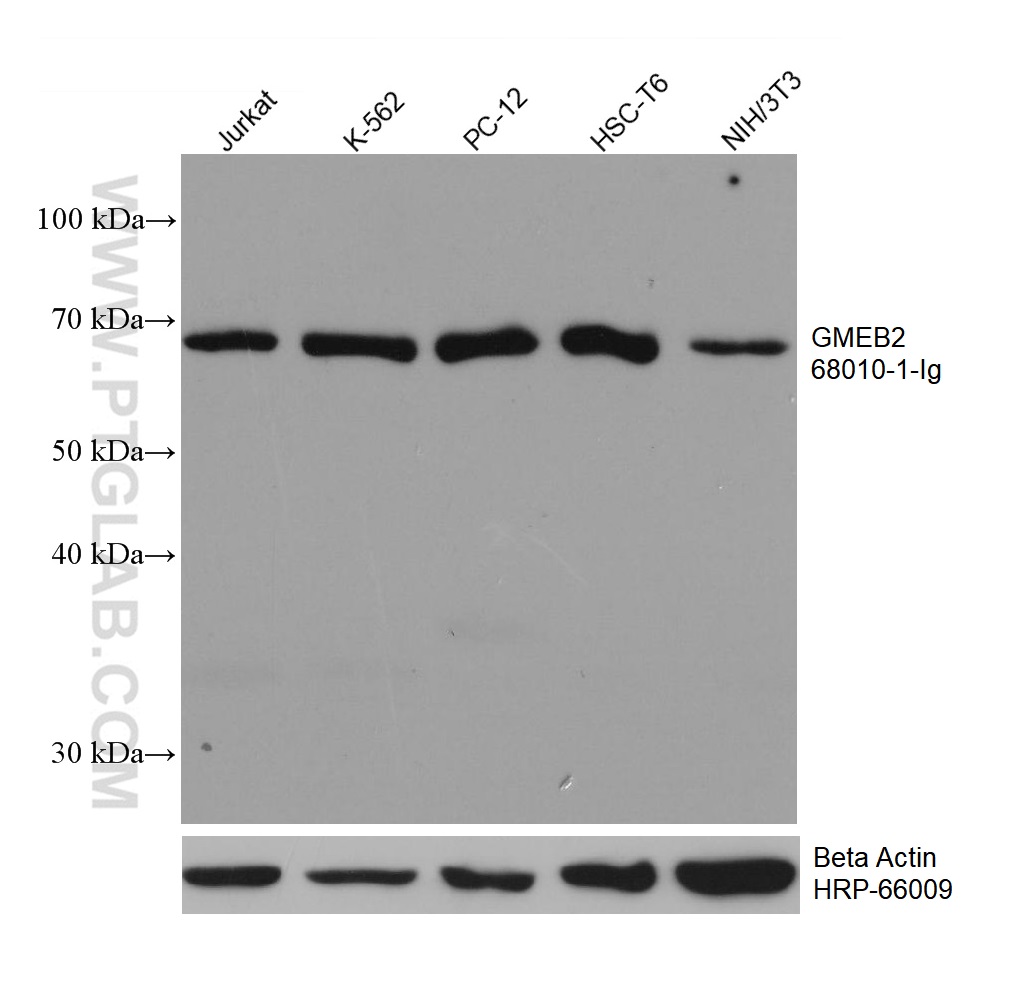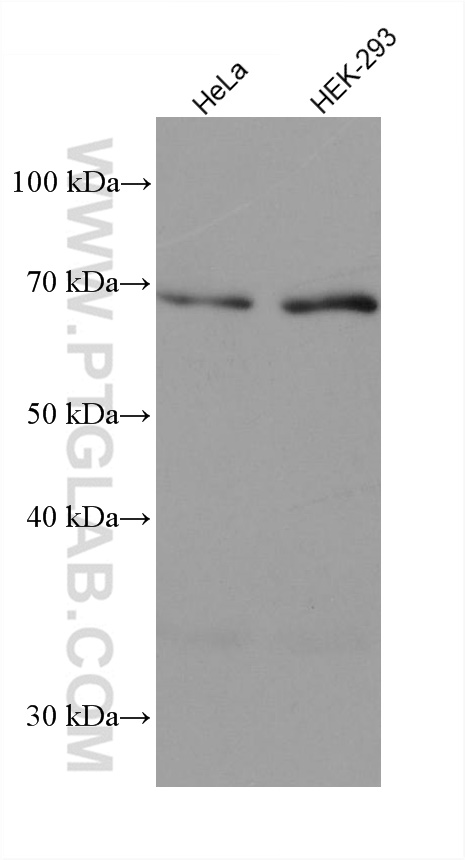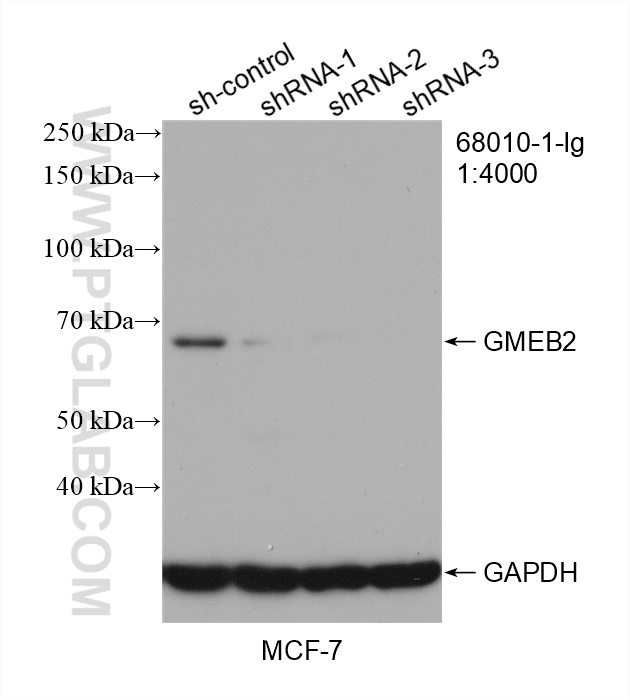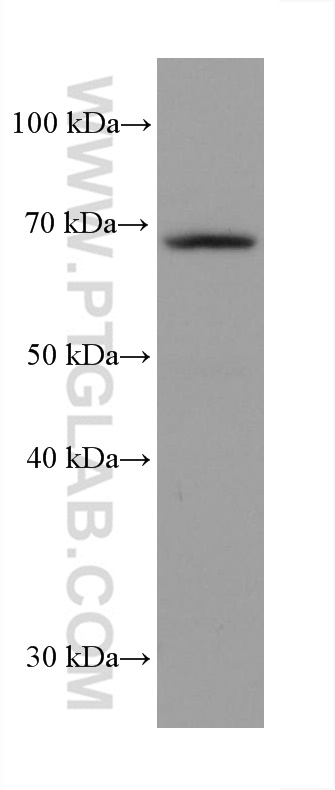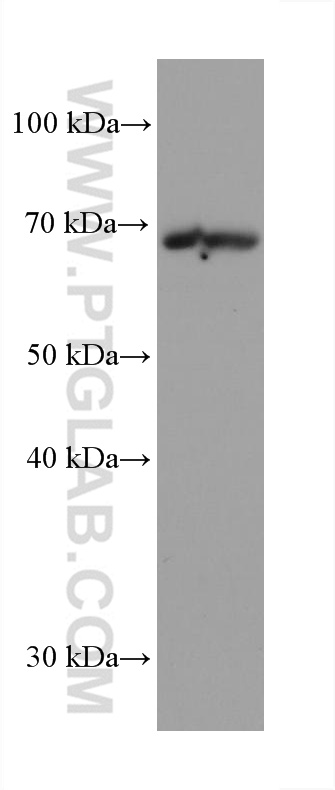验证数据展示
经过测试的应用
| Positive WB detected in | HeLa cells, MCF-7 cells, Jurkat cells, RAW 264.7 cells, HEK-293 cells, K-562 cells, PC-12 cells, HSC-T6 cells, NIH/3T3 cells |
推荐稀释比
| 应用 | 推荐稀释比 |
|---|---|
| Western Blot (WB) | WB : 1:2000-1:10000 |
| It is recommended that this reagent should be titrated in each testing system to obtain optimal results. | |
| Sample-dependent, Check data in validation data gallery. | |
产品信息
68010-1-Ig targets GMEB2 in WB, ELISA applications and shows reactivity with Human, mouse, rat samples.
| 经测试应用 | WB, ELISA Application Description |
| 经测试反应性 | Human, mouse, rat |
| 免疫原 |
CatNo: Ag31393 Product name: Recombinant human GMEB2 protein Source: e coli.-derived, PET28a Tag: 6*His Domain: 1-304 aa of BC036305 Sequence: MATPDVSVHMEEVVVVTTPDTAVDGSGVEGVKTVLVTTNLAPHGGDLTEDNMETENAAAAAAAAFTASSQLKEAVLVKMAEEGENLEAEIVYPITCGDSRANLIWRKFVCPGINVKCVQYDEHVISPKEFVHLAGKSTLKDWKRAIRMNGIMLRKIMDSGELDFYQHDKVCSNTCRSTKIDLSGARVSLSSPTSAEYIPLTPAAADVNGSPATITIETCEDPGDWTAAIGDDTFTFWRGLKDAGLLDEVIQEFHQELVETMRGLQQRVQDPPLQLRDAVLLNNIVQNFGMLDLVKKVLASHKCQ 种属同源性预测 |
| 宿主/亚型 | Mouse / IgG1 |
| 抗体类别 | Monoclonal |
| 产品类型 | Antibody |
| 全称 | glucocorticoid modulatory element binding protein 2 |
| 别名 | DNA binding protein p79PIF, GMEB 2, GMEB2, KIAA1269, P79PIF, PIF p79, PIF79 |
| 计算分子量 | 530 aa, 56 kDa |
| 观测分子量 | 68 kDa |
| GenBank蛋白编号 | BC036305 |
| 基因名称 | GMEB2 |
| Gene ID (NCBI) | 26205 |
| RRID | AB_2918757 |
| 偶联类型 | Unconjugated |
| 形式 | Liquid |
| 纯化方式 | Protein G purification |
| UNIPROT ID | Q9UKD1 |
| 储存缓冲液 | PBS with 0.02% sodium azide and 50% glycerol, pH 7.3. |
| 储存条件 | Store at -20°C. Stable for one year after shipment. Aliquoting is unnecessary for -20oC storage. |
背景介绍
GMEB-2 (glucocorticoid modulatory element-binding protein 2), also known as PIF79 (Parvovirus initiation factor p79) or P79PIF, is a DNA-binding protein that plays a crucial role in modulating transcription upon activation by steroid hormones. GMEB-2 is ubiquitously expressed with preferential expression in developmentally important tissues.
实验方案
| Product Specific Protocols | |
|---|---|
| WB protocol for GMEB2 antibody 68010-1-Ig | Download protocol |
| Standard Protocols | |
|---|---|
| Click here to view our Standard Protocols |

